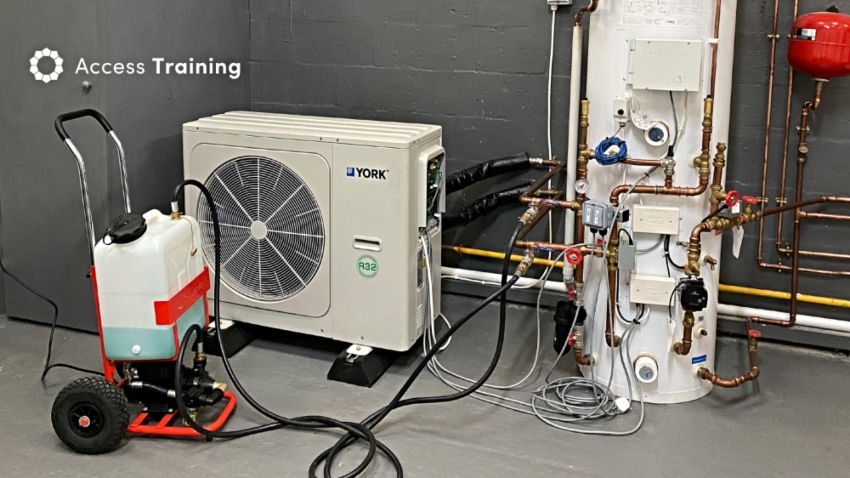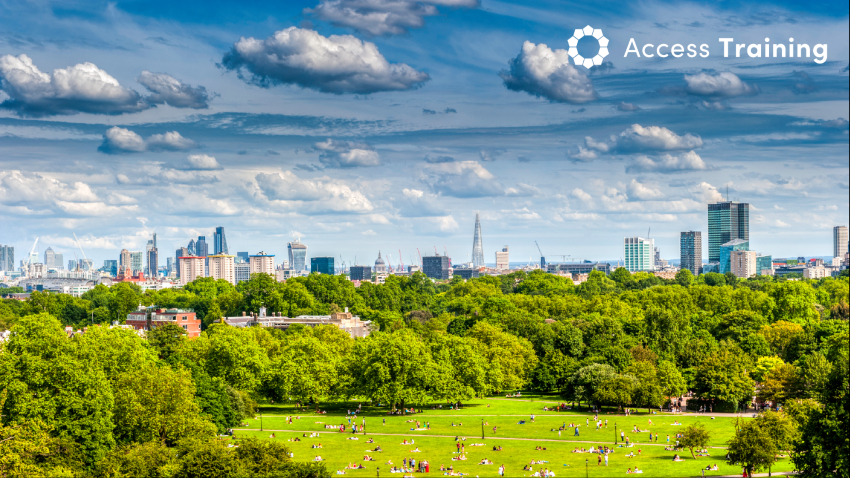
If you're looking for jobs in renewable energy, we've compiled a list of tips and tricks to land you a perfect role. You will be directly contributing to the production of environmentally-friendly energy sources in no time.
More...

Renewable energy is an extremely exciting sector to get your teeth stuck into if you're looking for a career in trade. Since renewable energy is a relatively new industry, there are a range of exciting new career opportunities for those looking to explore a career in renewables. When you work in renewables, you will help to reduce greenhouse gas emissions from fossil fuels by providing renewable alternatives.
Careers in renewable energy are incredibly rewarding, as they help the environment and provide excellent career benefits. If you’re interested in learning more about what pursuing a career in renewable energy might look like for you, you’re in the right place.
More...
Back in January official Government figures showed that the Green Deal wasn't doing too well - in fact in it's first year it had barely managed to achieve a fraction of its expected targets. And although the Government admitted things weren't working out quite the way they had anticipated, Climate Change minister Greg Barker still considered it an encouraging start and was confident things were going to pick up in 2014. Could he have been right?
Electrical body NICEIC are reporting that now more than 1000 companies have signed up for Green Deal installer status with them, alongside further news that consumer interest has picked up in recent months. Since the end of December, an impressive 129,842 Green Deal assessments are said to have been lodged. With only 1,612 houses recorded to have made plans overall (with a further 626 houses having plans in place), this figure alone has the potential to upset last years numbers.
 NICEIC head of operations Paul Collins said, "The government is committed to ensuring that all work undertaken via Green Deal is carried out by registered firms and with interest in the initiative now ramping up we are seeing more and more firms look to get involved. We have witnessed a large number of skilled professionals such as electricians, plumbers, heating and gas engineers come to NICEIC for certification as it is a name associated with quality and assurance."
NICEIC head of operations Paul Collins said, "The government is committed to ensuring that all work undertaken via Green Deal is carried out by registered firms and with interest in the initiative now ramping up we are seeing more and more firms look to get involved. We have witnessed a large number of skilled professionals such as electricians, plumbers, heating and gas engineers come to NICEIC for certification as it is a name associated with quality and assurance."
So maybe the Government's confidence in the Green Deal wasn't unfounded? That being said it still has a long way to go yet - after all if none of these put plans in place then the Green Deal is back at square one. For those still not in the know about this Government programme, the Green Deal aims to fund energy-saving upgrades to homes without any upfront costs for installation. Instead, the costs are added to your energy bills and staggered over time.
This may sound offputting, but the rule of the Green Deal is that the repayments MUST be less than the money you're saving on your energy bills - so you'll be paying less regardless of the installments. Interested customers must first have a propety assesment performed by a special Green Deal advisor, who will look at your home's current energy performance and suggest what measures are suitable for you. From there you can begin searching for quotes from Green Deal providers who will be able to tell you the overall cost of the work.
More information on the Green Deal can be found on the DECC (Department of Energy and Climate Change)'s website, but expect more news in the future as it seems there's life in the programme yet!
The Green Deal has just had its first birthday, and unfortunately it hasn't been such a great year for the UK Government's flagship energy efficiency programme.
 Official figures have revealed that only 626 houses have live Green Deal plans in place, which is nowhere near the 10,000 figures minsters were expecting to be in place. As of December, only a total of 1,612 houses had made plans overall.
Official figures have revealed that only 626 houses have live Green Deal plans in place, which is nowhere near the 10,000 figures minsters were expecting to be in place. As of December, only a total of 1,612 houses had made plans overall.
While assessments had never really been on the rise, they notably declined by 21% during December, which the government attributed to the Christmas holidays. However several leading green energy groups have spoken out against the Green Deal's poor statistics, stressing that the Government needs to try a lot hard in order for it to succeed.
The Federation of Master Builders has given the first year of the Green Deal a "report card" rating of two out of five, commenting that is has "not achieved the desired results in its first full year, with the majority of SME installers and home owners failing to engage". Chief Executive Brian Berry called the financial package "unattractive to most consumers". He also went on to say how the programme simply doesn't stack up against other high-street money saving alternatives such as loans and credit cards available at more competitive rates. His suggestions to improve the Green Deal were:
"The single most effective measure to kick-start demand would be to reduce the rate of VAT from 20% to 5% on all domestic repair and maintenance work, including energy-efficiency improvements. This would be a real incentive to home owners across the board to think about getting a professional tradesperson in to quote on a variety of repair and maintenance projects."
Meanwhile the UK Green Building Council also had things to say about the figures, calling it a "a wake-up call to the Government" that it is not delivering. Chief Excutive Paul King suggested that the Government must "recognise energy efficiency as a national infrastructure priority and be prepared to delve into its purse to make its flagship policy more appealing through stronger incentives and more attractive finance options"
But despite its failings, the Government have announced that they plan to stick by the Green Deal, and believe that although its hard a slow start (to put it lightly) 2014 will definitely be the year it takes off. Climate Change minister Greg Barker "acknowledged" that things hadn't developed the way the government had anticipated at a conference yesterday, he still though its first year had been an "encouraging start".
He also commented that the supply chain was now in place, with more than 125 Green Deal providers at the ready along with 2900 individual advisers and 2300 organistations officially approved to carry out installations. Procedures are also set to be simplified by the newly established Green Deal Working Group, with further alterations and improvements to be announced over the coming weeks.
So will 2014 fare better for the Green Deal? It's too early to say, but if these numbers are anything to go by then it doesn't look like it can do much worse.
After many months of the Green Deal with very little success, the Department of Energy & Climate Change have announced that they will begin introducing new measures at the beginning of 2014 to make it more straightforward and less time consuming for both tradespeople and consumers alike.
 In the eight months the Government's flagship energy policy has been running, a mere 12 homes have had measures put in place - although it is reported several thousand are waiting for applications to be processed after having home assessments carried out.
In the eight months the Government's flagship energy policy has been running, a mere 12 homes have had measures put in place - although it is reported several thousand are waiting for applications to be processed after having home assessments carried out.
The DECC plans to open up access to energy performance certificate (EPC) data so companies can then have better focus on how they market the scheme. It also plans to add more home improvement measures to the list that is covered by the Deal, while allowing more flexibility over the exact specifications companies must install to. A new, improved website will also be set up to increase consumer interest.
Finally there are also plans to work with the Green Deal Finance Company to make it possible for customers to go from a quote to a plan in a single day, removing the need for different people to make separate visits to homes as an application is processed.
The DECC will roll out some of these changes in January, however some require Paraliamentary approval to ammend the legislation and so will be coming in later months.
A committee of MPs have banded together to call for changes to be made to the Green Deal so that it is made more finanically attractive to both homeowners and landlords.
The All Party Parliamentary Group for Excellence in the Built Environment has compiled a 36-page report, entitled "Re-energising the green agenda", suggesting that the government's flagship green policy needs to be clearer in the public eye as many people are still unaware of its existence. The report commends the setting up of the Green Deal, but believes it is time for it to be reworked to make it work for social housing and to make the financial incentives it offers more permanent. It also advocates greater clarity from the government, saying:
"Despite setting out ambitious targets, the government has been sending mixed messages about its commitment to the green agenda. This has been particularly apparent over the delay to the revisions to Part L of the Building Regulations covering energy efficiency, and the slow progress on establishing how zero carbon will be met for domestic buildings in 2016. In recent years unexpected changes to the feed-in-tariffs also caused consternation and undermined confidence in the construction sector."
They have set out seven recommendations to the government in terms of changes, which include making retrofit more finanicially attractive by looking at ways in which it can reduce the interest rate on the Green Deal, bolstering the Green Construction board to make it a more transparent organisation that provide a clear construction industry focal point, and setting up an Existing Homes Hub (along the lines of the Zero Carbon Homes Hub), to engage with the industry on sustainability issues and provide a neutral space for the industry and DECC to work together.
Group chairman Oliver Colvile, Conservative MP for Plymouth, Sutton and Devonport, said: “The world faces significant environmental challenges, and to help combat them our government needs to ensure Britain plays its part in reducing CO2 emissions; make our homes more energy efficient; reduce the costs of heating our homes; help combat fuel poverty and meet our required energy needs.
“We hope this report sends a clear message to government to reaffirm and re-energise its commitment to the delivery of the sustainable agenda in construction and the built environment and in doing so, provide clarity and certainty to help industry play its part in turning policies into success stories. The potential to create jobs at home and export our new skills and expertise in this field abroad is a prize in itself.”
The full report can be read here at www.cic.org.uk
Via The Construction Index
Following Ed Miliband's promises to freeze energy bills for 20 months, limit the power yielded by the "big six" energy providers and replace energy regulator Ofgem, the Labour Party has also vowed to do something about the Green Deal at their annual party conference in Brighton earlier this week.
In a policy review published on the 24th September, the party promised to address the shortcomings of the Green Deal and create an alternative that would encourage people to sign up and make the changes to their homes. The review read: "The Green Deal is failing to deliver. Since its launch, only 384 deals have been signed up to and just twelve have gone live. This is woefully inadequate so we will overhaul the Green Deal and replace it with a new energy save scheme."
The Labour Party has also called the coalition government's flagship energy scheme "woefully inadequate" and is failing to provide any sort of long-term solution to reducing the country's carbon footprint. Energy secretary Caroline Flint said: "It was meant to be the biggest home improvement programme since World War Two and ministers said they would be having sleepless nights if 10,000 people had not signed up by Christmas 2013. They won’t be getting much shut eye."
Despite constant reports of growing interest in the Green Deal and the government's insistence that those who have had Green Deal assessments were happy and recommended them to friends and family, there have only been a total of 12 homes with completed projects since the scheme's launch earlier this year.
Of course, these changes they propose will only potentially happen should the Labour Party gain power in the next general election in 2015. With that still quite a way off, it'll be interesting to hear what exactly they propose as an alternative in the meantime.
Via uSwitch
Last month the Government announced that they would be making amendments to Part L of the Building Regulations, which deals with energy efficiency in both domestic dwellings and commercial properties. These changes, which will come into effect in April 2014, are designed to bring about a 6% improvement on new-homes compared with the original 2010 standard and a 9% improvement for non-domestic buildings.
So what exactly does Part L cover? The answer is essentially ANY method of providing heat and energy to your household or commercial building. This includes electricity, hot water, heating, wall/loft insulation, lighting and more. The last revision to these regulations was made in 2010, and have since made it so that every dwelling started after the 1st October 2010 must adhere to these new rules. This also stretches to new installations which are moved even slightly after this time.
An example to give it some context: Since 2010 all central heating systems and hot water outlets must be fitted with a thermostatic mixing valve (TMV) to regulate hot water temperatures and keep them no higher than 45°C. A bath fitting before October 2010 would not need one of these, and should the homeowner choose to refurbish their bath without it moving in the room this would continue to apply. HOWEVER if he or she then decided to get a new bath a move where in the bathroom it is fitted, it would then be subject to these new requirements.
Of course the Government's flagship method to bring down the carbon footprint is the Green Deal, which is pushing for more households to adopt renewable energy methods such as solar photovoltatic, solar thermal and underfloor heating. However one other method they are trying is through ECO, which stands for Energy Company Obligation. If you're on certain benefits (visit here for the full list), are retired/disabled/have children and own or rent your home, you could find you are entitled to all or part of the cost towards boiler repair/replacements and loft/cavity wall insulation.
What will play a significant part in these new changes however is lighting efficacy. The revised Part L will include a new method for measuring lighting efficiency, which takes into account the whole installation rather than the individual components. This is called LENI - the Lighting Efficiency Numeric Indicator. The Lighting Industry Association have put together a mini guide to these new requirements, including the formula and calculations to work out luminaire efficacy the LENI, which can be viewed here.
Make no mistake, there is A LOT of information and statistics surrounding Part L but hopefully this post has made things a little clearer for you and given you a better idea of what is required to help reduce Britain's carbon footprint.
Despite numerous articles panning the Green Deal and various other renewable energy initiatives, it seems they've had little effect on the general public's support for environmentally-friendly alternatives.
New research by the Department of Energy and Climate Change (DECC), which surveyed over 2000 UK households back in July, has found that their strategies for implementing more renewable energy sources across the country still receive high support from the public - with 76% of respondants backing their plans.
However despite this seemingly high number there has been somewhat of a decline in interest. 18 months ago this figure stood at a slightly higher 79%, but earlier in the year it stood at a much more impressive 82%. However on the upside the number of those that oppose renewable installations hasn't changed - standing at the same 5% it did 18 months ago.
As well as recording support for large-scale energy generating methods such as wind farms and biomass, the research also found that Brits are actually quite in the know when it comes to saving money on their own personal bills with 76% having considered different ways to bring bills down. Unfortuntately, it also seems that this knowledge perhaps isn't in the right places just yet, with nearly half of respondants (47%) having never heard of smart meters. This is only 6% less than it was 18 months ago.
Smart meters are an important part of government strategy. They work by connecting homes directly to energy firms through electricity meters. This means their bills are always calculated via exact readings as opposed to estimated usage levels, which can lead to lower costs in the long run.